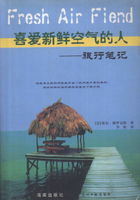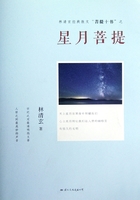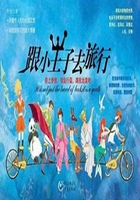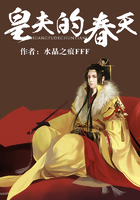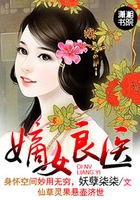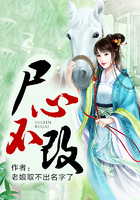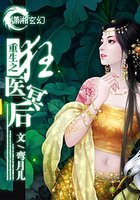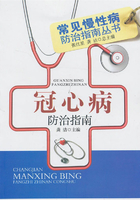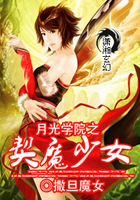烹调是中国传统文化中的瑰宝,在世界上享有盛誉。本篇简要介绍中国烹调的历史、中国菜肴的基本特点、中国菜系以及中国人的饮食习俗。
1.你对中国烹调有什么认识?
How do you think of Chinese cuisine?
Chinese cuisine is one of the delights of the world. There are few people who have not tried Chinese dishes of some sort at one of the many Chinese restaurants that exist in their own country. Most visitors appreciate the fact that Chinese cooking has traditions, which go further back in history than those of French cuisine. They understand that Chinese cuisine is an art, which grew out of a highly developed civilization. The infinite numbers of Chinese dishes, flavors, textures, and methods of cooking, make eating Chinese food exciting.
Another fact is that Chinese cuisine can be conveniently prepared in home kitchens. Chinese people value their way of dining very much. There is an old saying that says,“Food is the first necessity of the people (民以食为天).”Delicious and nutritious food has been regarded as the basis of life. Chinese cooking uses almost all the meat, poultry, fish, and vegetables known to the Western palate, but also embrace other foodstuff which, to Western taste, appear exotic. Compared with the food served at many of the Chinese restaurants abroad, visitors will almost certainly find a difference in quality, substance, and style in the food prepared in China itself.
Notes:1)cuisine烹饪;2)civilization文明;3)texture质地; 4)conveniently方便地;5)delicious美味的;6)nutritious有营养的; 7)poultry家禽;8)palate味觉;9)exotic奇特的;10)substance物质
2.辣椒是中国自古就有的吗?
Was red pepper a local product in ancient China?
Sichuan cuisine has enjoyed a worldwide reputation, and people immediately associate it with hot or spicy food. Actually, however, these flavors were introduced only in last 200 years. Before that time, there were no hot dishes in Sichuan, and few were cooked with pungent and hot flavorings. Originally, the flavor of Sichuan cuisine was quite mild.
Research shows, red pepper is, in fact, native to Mexico, Central America, the West Indies, and parts of South America. It is called capsicum pepper. The Spanish discovered it in the New World and brought it back to Europe. Before the arrival of Spaniards, Indians in Peru and Guatemala used capsicum pepper to treat stomach and other ailments.
Before the Ming Dynasty, there was no red pepper in China. It was introduced into China only around the end of the 17th century. Local people in Chaozhou area, Guangdong Province call red pepper fanjiao (番椒), which means“foreign pepper.”At the beginning, it was used for medical or ornamental purposes. Only later did it appear in Southwest China where the local people treasure its taste. Sichuan has humid climate which encourages people to eat strongly spiced foods, and the red pepper may help reduce internal dampness ailment.
Notes:1)reputation名声;2)spicy辛辣的;3)flavoring调料; 4)capsicum辣椒(的种子);5)Peru秘鲁;6)Guatemala危地马拉; 7)stomach腹部;8)ornamental装饰的;9)humid潮湿的;10)internal体内的
3.中国烹调注重菜的“型”和“味道”吗?
Does Chinese cuisine pay attention to the appearance and taste of dishes?
Chinese food appeals to the senses through color, shape, aroma and taste. Shape mainly depends on methods of cutting. Cooks cut raw materials to be sliced, diced, shredded, or minced, based on the requirements of the dish and the character of the raw food. Improper cutting makes food unattractive and causes unevenness in color and taste. In stir-frying, improper cutting will result in the small pieces being overcooked and big pieces remaining raw.
Taste mainly depends on the seasonings. There are many tastes—salty, sweet, sour, pungent, fragrant, bitter and so forth. The proper use of seasonings will produce a variety of dishes to suit a variety of appetites. A good Chinese cook knows what to add, how much to add and when to add. Chinese cooks even now have created new tastes, including mala (麻辣, numbing spicy sauce), yuxiang (鱼香, tasty fish-flavored sauce), guaiwei (怪味, strange salty, spicy, and sesame sauce) and so on.
Notes:1)slice切成薄片;2)dice将(蔬菜等)切成小方块; 3)shred切成条状;4)mince切碎;5)requirement要求;6)unattractive无吸引力的;7)uneven不平坦的;8)overcook使煮过头;9)seasoning调味料;11)appetite食欲;12)sesame芝麻
4.中国烹调注重“火候”吗?
Does Chinese cuisine pay attention to the fire temperature?
Chinese cooks pay particular attention to fire temperature to bring out certain flavors. They have known the importance of this ever since ancient times. The eight delicacies (八珍) of Ritual of Zhou call for stewing, braising or simmering over a slow, small fire for a long time. A proper fire means a delicious dish. Generally speaking, raw food should be cooked over a small fire for a long time as it is cut in large pieces. On the other hand, raw food cut in small pieces is cooked over a high flame on a form of frying or stir-frying. There are several other cooking methods to use, depending on the dishes to be prepared. Instead of the common everyday pot, a special pot is sometimes used. It is sealed before being placed over the fire. Usually its cooking period lasts for a fairly long time, and the ingredients smell good and make eating exciting.
Notes:1)stew炖;2)braise以文火炖煮;3)simmer煨
5.中国主要地域菜系是怎样划分的?
What are the main regional cuisine in China?
Since ingredients are not the same everywhere, Chinese food began to take in a local character by virtue of the ingredients. Chinese regional cuisine have evolved over the course of the centuries, and the precise number is disputed. Generally speaking, there are four basic gastronomic areas: Shandong, Cantonese, Sichuan and Yangzhou; but these designations have no specific geographical boundaries. Beijing cooking, for instance, falls within the realm of Shandong cuisine and includes some Sichuan dishes and Mongolian-influenced specialties. The cuisine in the Changjiang River delta area, including Huaiyin, Suzhou, Shanghai and Hangzhou dishes, falls under the category of Yangzhou cuisine.
The four regional cuisine have influenced each other, and their cooking methods are shared among themselves. Nevertheless, each regional cuisine has its own history, unique techniques, distinguished dishes and prevailing tastes.


